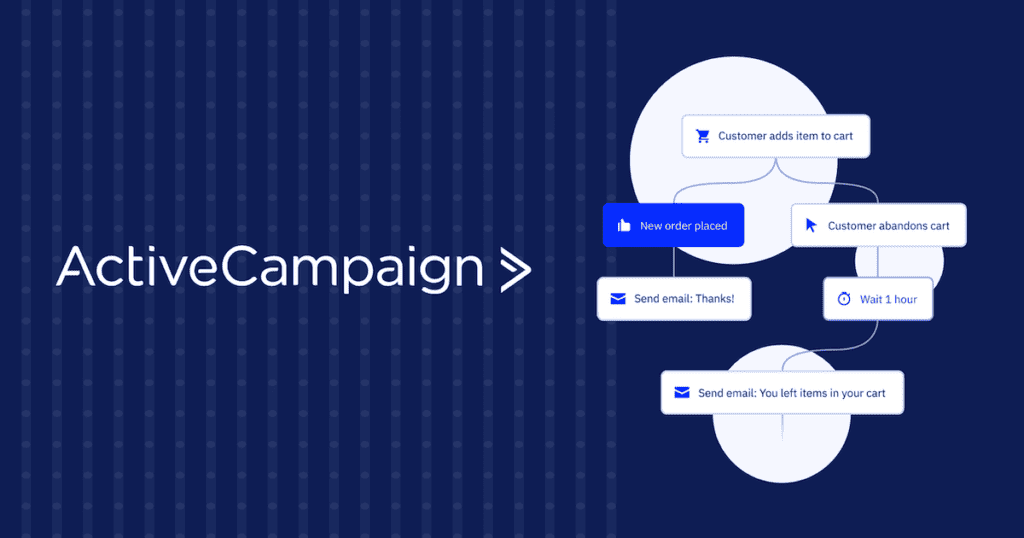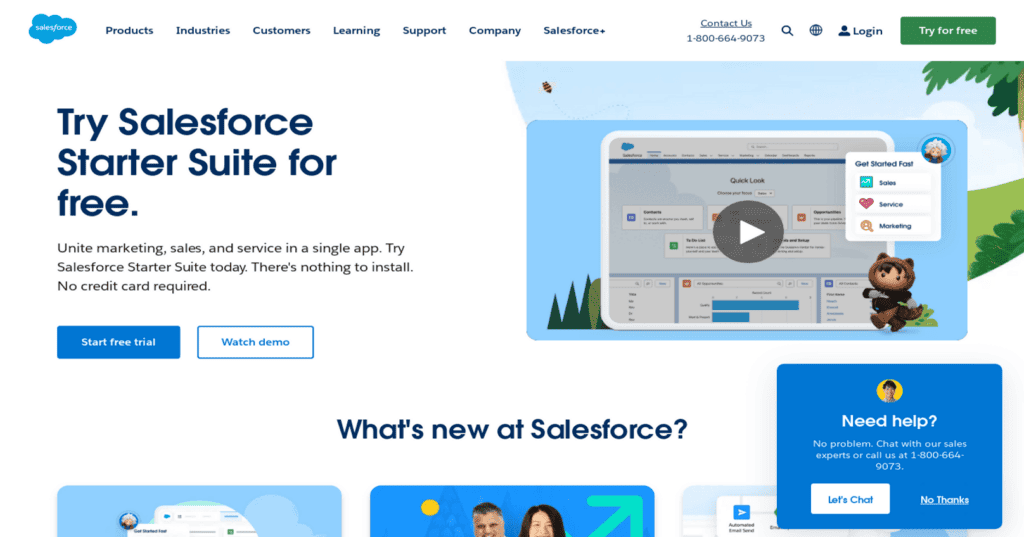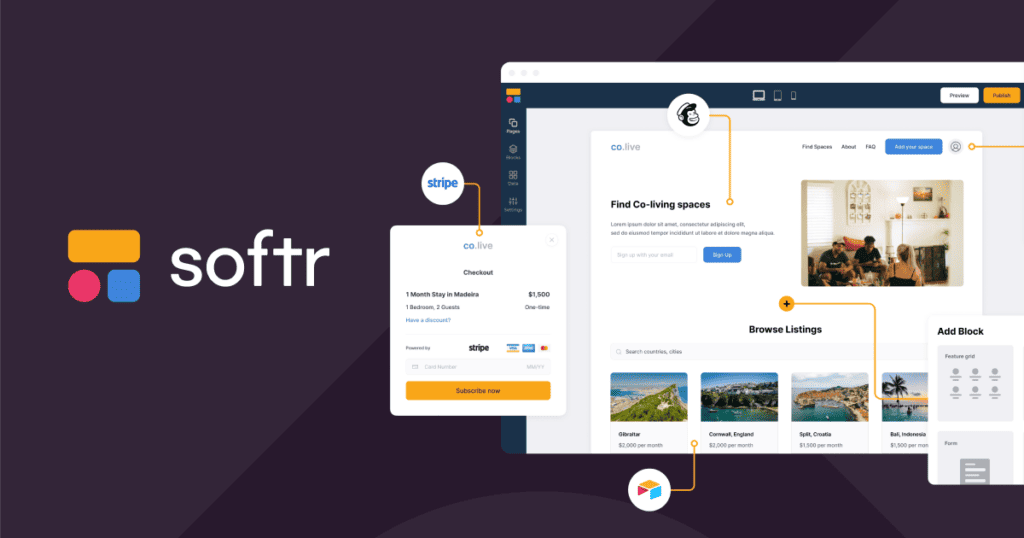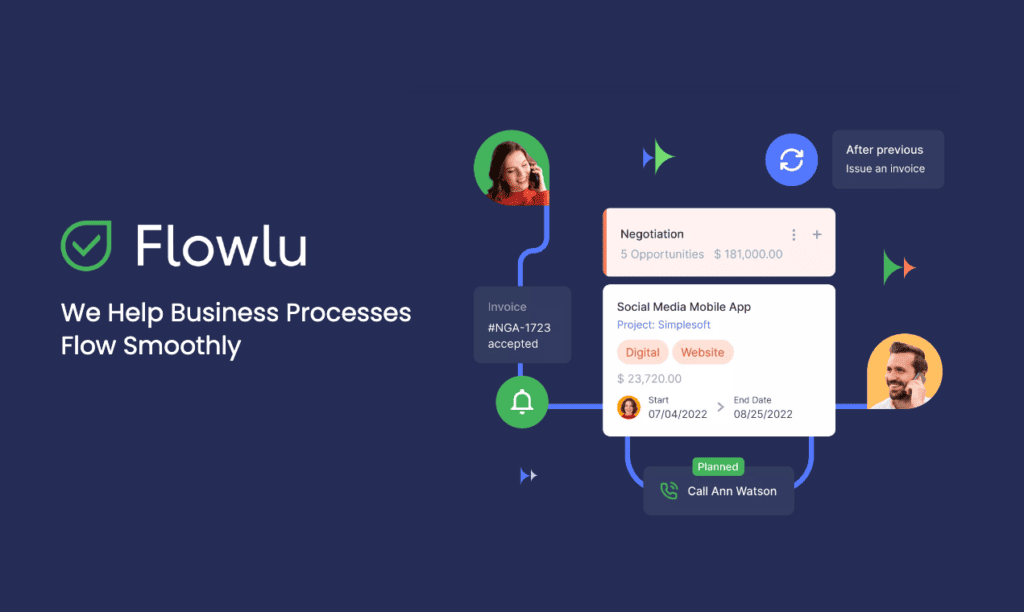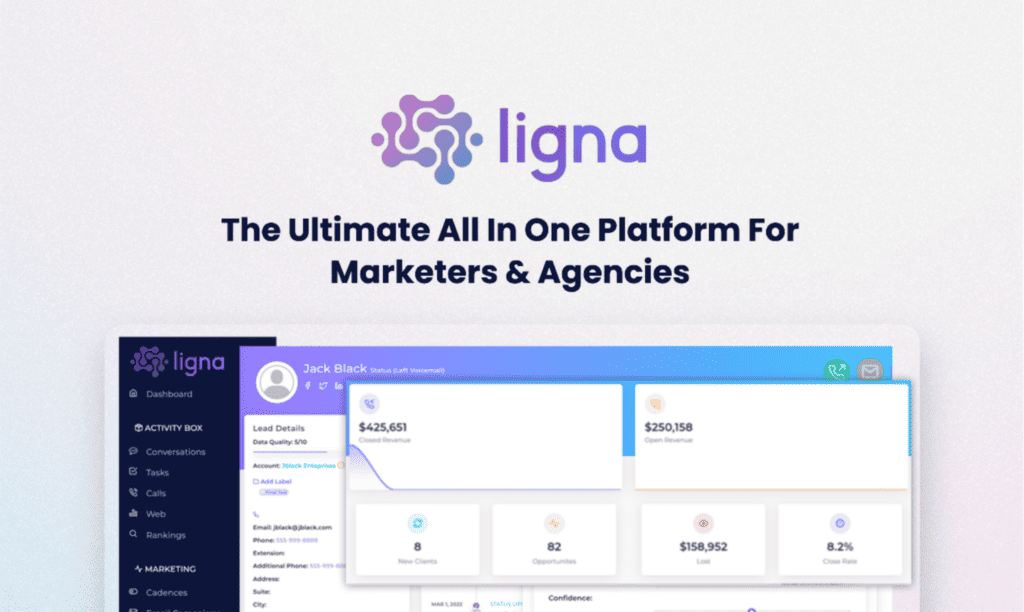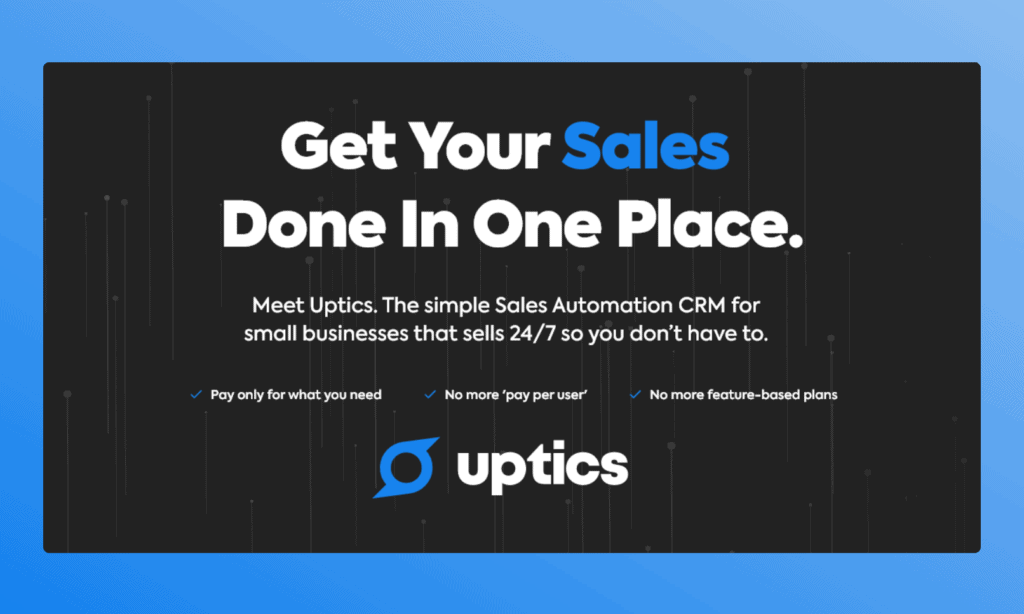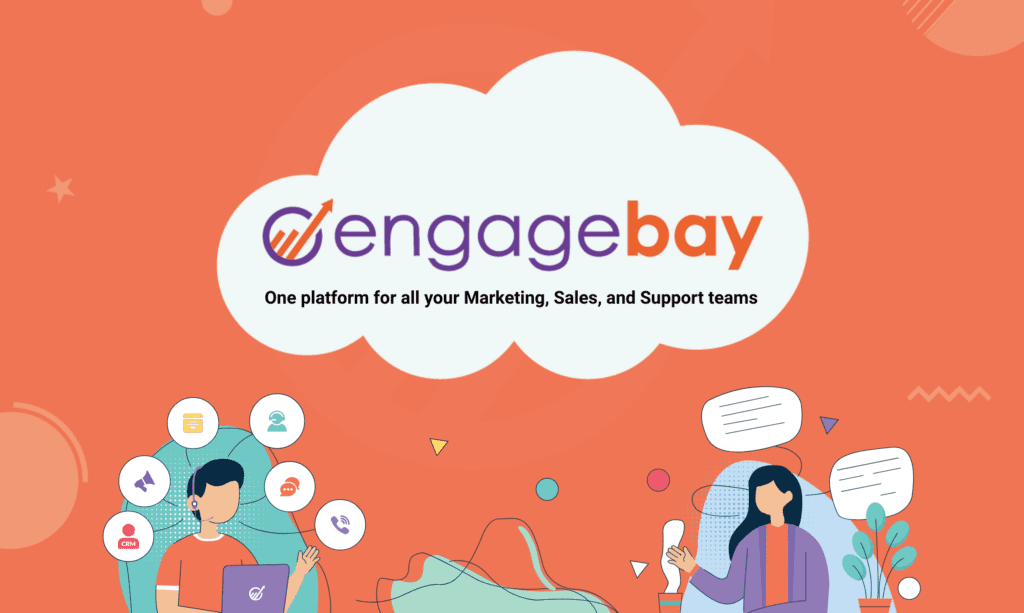ChatMaxima
Read more about ChatMaxima

Embarking on the journey of selecting the right CRM software can be transformative for your business, guiding you through the nuances of customer interactions and data management. At its core, CRM software not only streamlines sales and marketing processes but also elevates customer service to new heights. By implementing best practices, such as integrating marketing automation and mapping out the customer journey, businesses can achieve a more holistic view of their customer base, leading to increased satisfaction and loyalty.
Choosing the top CRM solutions requires a deep understanding of your business needs, the size of your operation, and the specific goals you aim to achieve. Whether you’re a small startup or a sprawling enterprise, the market offers a plethora of options tailored to various industries and business models. It’s crucial to consider CRM solutions that offer scalability and customization, allowing your CRM system to grow and evolve alongside your business.
Moreover, the impact of CRM software extends beyond mere contact management; it’s a powerful tool for generating insights and automating tasks, thereby freeing up valuable time for your team to focus on strategic initiatives. With the right CRM solution, businesses can enhance their operational efficiency, improve customer relationships, and drive sales, all while navigating the complexities of today’s digital landscape.
The CRM software landscape is vast and varied, with options ranging from niche solutions tailored to specific industries to comprehensive platforms designed for global enterprises. A key aspect to consider is that many CRM has free tools, making it accessible for small businesses to start leveraging the power of CRM without a significant upfront investment. These free tools often include basic features such as contact management and email integration, providing a solid foundation for businesses to begin optimizing their customer relations.
The journey of CRM software from basic contact management systems to advanced, integrated platforms reflects the evolving needs of businesses in a digital-first world. Initially, CRM systems primarily focused on organizing contact information and tracking interactions. However, as technology advanced, so did the capabilities of CRM software. Today, many CRM has free tools that offer a glimpse into the sophisticated functionalities that paid versions provide, such as sales automation, advanced analytics, and customer segmentation.
This evolution is marked by the introduction of artificial intelligence, machine learning, and big data analytics into CRM platforms, enabling businesses to predict customer behavior, personalize customer interactions, and streamline operations like never before. These advancements have transformed CRM software into an indispensable tool for businesses aiming to stay competitive in a fast-paced market.
Moreover, the shift towards cloud-based CRM systems has significantly increased accessibility and scalability for businesses of all sizes. Cloud solutions offer the flexibility to access critical data from anywhere, at any time, fostering a more agile and responsive business environment. This transition to advanced systems underscores the importance of choosing a CRM solution that can adapt and grow with your business.
At its heart, CRM software serves as the central hub for managing all aspects of a company’s interactions with current and potential customers. By harnessing the power of artificial intelligence, CRM platforms can automate repetitive tasks, provide sales teams with actionable insights, and deliver personalized customer experiences. This not only enhances efficiency but also helps businesses build stronger, more meaningful relationships with their customers, ultimately driving loyalty and growth.
Contact management is the foundation of any CRM system, enabling businesses to consolidate and organize customer information in a centralized database. This ensures that every team member has access to up-to-date contact details, interaction history, and preferences, which is crucial for delivering personalized customer experiences.
Sales management functionalities within CRM platforms empower sales teams by automating sales processes, tracking deals in real-time, and providing insights into sales performance. This not only streamlines the sales process but also helps in identifying opportunities for upselling and cross-selling, thereby boosting revenue.
Customer service management is another critical component, as it allows businesses to efficiently manage customer inquiries, complaints, and feedback. Integrated ticketing systems, self-service portals, and knowledge bases within CRM software enable quick and effective resolution of customer issues, enhancing satisfaction and loyalty.
While traditionally associated with sales and marketing, the realm of CRM applications has expanded significantly to include project management, workflow automation, and even social media integration. This broader application of CRM tools signifies a shift towards a more integrated approach to managing all aspects of customer engagement and internal operations. By centralizing data and processes, businesses can achieve greater efficiency and a more cohesive strategy across departments.
Furthermore, advanced CRM platforms now offer features like predictive analytics and AI-driven insights, enabling businesses to anticipate customer needs and tailor their offerings accordingly. This expansion beyond the conventional boundaries of CRM underscores its role as a comprehensive tool for business optimization, not just customer relationship management.
CRM software is not one-size-fits-all; its versatility allows for customization and scalability to suit the unique needs of businesses of all sizes. Small businesses can benefit from CRM systems that offer simplicity and ease of use, focusing on essential features like contact management and email integration. Conversely, large enterprises may require more sophisticated solutions with advanced analytics, marketing automation, and integration capabilities. Recognizing the diverse requirements and resources of different businesses is key to selecting the perfect CRM solution.
Small businesses face unique challenges that require a strategic approach to CRM adoption. Limited resources and budgets mean that these businesses must carefully select CRM software that offers essential functionalities without overwhelming complexity. Opting for CRM platforms with intuitive interfaces, straightforward setup processes, and scalability can empower small businesses to manage customer relationships effectively, even with a small team.
Moreover, CRM solutions that provide access to customer data and insights can help small businesses personalize their marketing efforts, streamline sales processes, and improve customer service. By focusing on CRM systems that prioritize user-friendliness and essential features, small businesses can leverage the power of CRM to foster growth and customer loyalty.
For expanding enterprises, the scalability and integration capabilities of CRM software become paramount. As businesses grow, their CRM system must be able to accommodate an increasing volume of customer data, more complex sales cycles, and a broader range of customer interactions. Choosing a CRM solution that offers seamless integration with existing business systems, such as ERP and marketing automation platforms, is crucial for maintaining operational efficiency and data consistency.
Additionally, enterprises should look for CRM software that supports customization and advanced analytics, enabling them to adapt the system to their evolving business needs and gain deep insights into customer behavior. Implementing a scalable, integrated CRM strategy allows expanding businesses to maintain a competitive edge, optimize customer engagement, and drive sustainable growth.
Selecting the perfect CRM software requires a thorough understanding of your business’s unique needs and objectives. Start by assessing your current processes and identifying areas where CRM can bring the most value, such as sales automation, customer data management, or customer service improvement. Consider the size of your business, the complexity of your sales cycles, and the level of customization you need.
Furthermore, evaluate potential CRM systems based on their ease of use, integration capabilities, scalability, and the quality of customer support they offer. Opting for a CRM platform that aligns with your business goals and can grow with your company is crucial for maximizing the benefits of CRM software. Remember, the right CRM solution can transform your customer relationships and propel your business forward.
An effective CRM system must offer a comprehensive set of features that cater to the core aspects of customer relationship management. At the forefront are contact and sales management tools that provide a 360-degree view of customer interactions, enabling personalized communication and efficient sales tracking. Equally important are customer service management features that facilitate quick resolution of customer issues and foster positive customer experiences.
Beyond these foundational features, CRM systems should also offer advanced functionalities such as marketing automation, analytics, and reporting tools. These capabilities enable businesses to automate repetitive tasks, gain insights into customer behavior, and measure the effectiveness of their sales and marketing strategies. Selecting a CRM platform that encompasses these essential features is key to unlocking the full potential of CRM software for your business.
When you dive into CRM tools, the first thing you’ll appreciate is a user-friendly dashboard. This is where you can see everything at a glance – from sales forecasts to customer interactions. It’s essential that these dashboards are not just comprehensive but also customizable. This means you can tweak them to show exactly what’s important to you and your team. Whether it’s tracking specific metrics or keeping an eye on team performance, customization lets you focus on what matters most.
Customizable reports are another critical feature, allowing you to generate insights that are tailored to your business’s unique needs. Whether you’re looking to understand customer behavior better or evaluate the success of your marketing campaigns, the ability to create custom reports is crucial. This flexibility ensures you’re not stuck with generic reports that don’t quite fit your needs.
Moreover, the best CRM software makes it easy to share these reports. With a few clicks, you can distribute them across your team or to stakeholders, ensuring everyone is on the same page. This level of accessibility and customization fosters a data-driven culture, empowering decision-making across all levels of your business.
CRM tools shine brightest when it comes to automation, particularly in streamlining sales pipelines. Automation can take over repetitive tasks, like sending follow-up emails or updating sales records, freeing up your sales team to focus on more strategic activities. This not only increases efficiency but also reduces the chances of human error, ensuring that your sales process runs smoothly.
Beyond just efficiency, automation in CRM systems can provide predictive analytics to forecast sales trends, helping you make more informed decisions. By automating the analysis of sales data, CRM tools can highlight opportunities for upselling or cross-selling, and identify potential bottlenecks in your sales process before they become issues.
The true power of CRM software often lies in its ability to integrate with other tools and platforms your business uses. These integrations can significantly enhance its capabilities, making it a central hub for all your customer-related activities. For instance, connecting your CRM to your email platform enables seamless communication logs, while integration with accounting software ensures that sales and financial data are always in sync.
Furthermore, the ability to integrate with social media platforms opens up new avenues for customer engagement and service. By pulling in data from these platforms, CRM tools can provide a more comprehensive view of your customer interactions, helping you to tailor your marketing and sales strategies more effectively.
Integrating CRM tools with email and social media platforms is a game-changer for businesses. It allows for a unified approach to customer communication, ensuring that no message, no matter the platform it comes from, goes unnoticed. This integration means you can track all interactions with a customer, from an initial email inquiry to social media comments, all within the same system. This holistic view enables you to provide a consistent and personalized customer experience.
Moreover, these integrations can automate responses to common queries on social media, streamline email marketing campaigns, and enable social listening to understand customer sentiment better. This not only improves efficiency but also enhances your ability to engage with your audience in a meaningful way, fostering stronger relationships.
The flexibility of CRM software is further amplified by the ability to integrate with third-party applications. These integrations can expand its functionality in ways that are uniquely beneficial to your business. Whether it’s adding advanced analytics, project management capabilities, or specialized marketing tools, third-party applications can tailor your CRM system to fit your specific needs.
This expansiveness also means you can adapt your CRM system as your business evolves. As new challenges arise or as you expand into new markets, the ability to integrate new tools ensures that your CRM system remains a powerful asset. This capability keeps your technology stack not just current but ahead of the curve.
Moreover, these integrations can sometimes open up new possibilities that were previously unconsidered. Whether it’s leveraging AI for better customer insights or utilizing blockchain for secure transaction records, the potential for innovation is vast. The key is in understanding the needs of your business and exploring integrations that can help meet those needs effectively.
In the search for the perfect CRM tool, it’s essential to consider the top solutions on the market. Each software comes with its unique set of features, integrations, and capabilities designed to meet various business needs. From managing customer relationships to automating sales processes and beyond, the right CRM software can transform your business operations.
Reviewing these top solutions involves looking at their ease of use, customization options, integration capabilities, and scalability. Whether you’re a small business or a large enterprise, there’s a CRM solution tailored to your needs. The following sections provide a comprehensive overview of some of the leading CRM software solutions, helping you make an informed decision.
Zendesk Sell stands out in the CRM landscape for its emphasis on improving sales productivity and enhancing customer relationships. With an intuitive interface, it ensures that your sales team can focus on what they do best: selling. Zendesk Sell offers a range of features, including email integration, sales forecasting, and performance tracking, making it easier to manage and nurture your sales pipeline.
One of the key strengths of Zendesk Sell is its customization capabilities. You can tailor the software to fit your specific sales process, ensuring that you’re working as efficiently as possible. Moreover, with robust reporting features, Zendesk Sell allows you to generate insightful reports, helping you make data-driven decisions to drive sales growth.
Furthermore, Zendesk Sell’s integration with other Zendesk products means you can create a seamless customer experience from the first contact through to post-sale support. This level of integration ensures that you’re not just managing sales but building lasting customer relationships.
HubSpot is renowned for its comprehensive CRM capabilities that go beyond basic functions to support your entire marketing, sales, and service funnel. With HubSpot, you can manage your contacts with ease, while also utilizing the platform’s powerful marketing automation features to create and execute effective marketing campaigns. This all-in-one approach ensures that you’re not just staying on top of your sales processes but are also proactively engaging with your audience.
Moreover, HubSpot offers extensive analytics and reporting features, allowing you to track the effectiveness of your marketing campaigns and sales activities. This data-driven approach ensures that you can refine your strategies over time, leading to better results and a deeper understanding of your customers.
Zoho CRM is designed to meet the diverse needs of businesses of all sizes. Its flexibility and scalability make it an ideal choice for companies looking to grow their operations. With Zoho CRM, you can manage your sales, marketing, and customer support processes in one platform, streamlining your business operations and improving efficiency.
Zoho CRM also stands out for its customization options, allowing you to tailor the software to your specific business processes. This level of customization ensures that the software works for you, not the other way around. Additionally, with advanced analytics and reporting features, Zoho CRM enables you to gain insights into your business performance, helping you make informed decisions.
Moreover, Zoho CRM’s integration capabilities mean you can connect it with a wide range of third-party applications, further enhancing its functionality. Whether you need advanced accounting features, project management tools, or marketing automation, Zoho CRM can integrate with these tools to provide a comprehensive business solution.
Salesforce is often regarded as the giant in CRM innovation, offering a comprehensive suite of services that cater to every aspect of customer relationship management. Its cloud-based platform is designed to bring companies and customers together, providing a single source of truth for all customer interactions. With Salesforce, businesses can streamline their processes, from marketing and sales to service and commerce, all within a unified environment.
Moreover, Salesforce’s commitment to innovation means it’s continually evolving, integrating the latest technologies such as AI and machine learning to offer smarter, more predictive insights. This focus on innovation ensures that businesses using Salesforce can stay ahead of the curve, leveraging cutting-edge tools to enhance their customer relationships and drive growth.
In the realm of CRM, Insightly stands out by seamlessly integrating project management features, allowing businesses to track client interactions and project progress all in one place. This integration means that from the moment a lead is captured, it can be nurtured through the sales funnel, and converted into a project without ever leaving the CRM environment. Der Software brings together client data and project milestones, ensuring that every team member is on the same page and can access critical information when they need it.
The benefit of this approach is profound. By centralizing data and project tasks, Insightly empowers businesses to deliver projects on time, within budget, and in alignment with customer expectations. Das bedeutet, businesses can improve their operational efficiency while enhancing customer satisfaction, a dual advantage in today’s competitive landscape.
Copper CRM revolutionizes how businesses using Google Workspace manage their customer relationships. By offering a deep integration with Google Workspace apps, Copper provides a seamless experience for users who rely on Google services for their daily operations. This means that emails, calendar events, and documents can automatically sync with Copper, making it easier to keep track of all customer interactions and tasks without switching between apps.
For businesses that prioritize efficiency, Copper’s intuitive interface and automation features significantly reduce the time spent on manual data entry. This allows sales teams to focus more on building relationships rather than on administrative tasks. Moreover, since Copper is designed to work within the Google ecosystem, adoption within teams accustomed to Google apps is swift and meets little resistance.
Lastly, Copper’s simplicity does not mean it’s basic. It offers a wealth of customization options and advanced features, such as sales pipeline visualization and lead tracking, which cater to the nuanced needs of growing businesses. This balance between simplicity and functionality makes Copper an attractive option for Google Workspace users looking for a comprehensive CRM solution.
Apptivo stands out as a versatile CRM solution tailored for the evolving needs of growing businesses. Its broad suite of applications spans beyond traditional CRM functionalities, offering tools for project management, invoicing, and supply chain management, all within a single platform. This versatility ensures that businesses can adapt the software to their unique processes, rather than the other way around. For businesses concerned about outgrowing their CRM, Apptivo presents a scalable solution that grows with them, ensuring they invest time only in the tools they need.
One of the key strengths of Apptivo is its customization capabilities. The platform allows businesses to tailor their CRM experience to their specific industry requirements, which means they can configure the system without extensive technical knowledge. This level of customization, combined with Apptivo’s affordable pricing model, makes it an ideal choice for small to medium-sized businesses looking to leverage CRM technology without breaking the bank. Sie keine Zeit in adapting the system to their needs, which equates to quicker implementation and ROI.
Sales Creatio is designed to nurture sales creativity and efficiency, offering a platform that und bietet comprehensive tools for managing the entire sales process, from lead to deal closure. Its intuitive design encourages sales teams to innovate their approach to customer engagement, supported by advanced automation and AI capabilities. The software streamlines complex sales processes, enabling teams to focus on creating personalized customer experiences that drive sales.
Another pivotal advantage of Sales Creatio is its no-code platform, which allows businesses to customize their CRM processes without the need for technical expertise. This flexibility is crucial for adapting to the rapidly changing sales landscape, ensuring that teams can quickly implement new strategies to stay ahead. With Sales Creatio, businesses have a powerful tool to enhance their sales efficiency and creativity, no card needed for basic access, making it accessible for companies of all sizes.
Less Annoying CRM lives up to its name by offering a straightforward, user-friendly platform that streamlines CRM processes for simplicity. Designed with small businesses in mind, it focuses on the core functionalities needed to manage customer relationships effectively without the complexity or clutter of more extensive systems. This approach demystifies CRM for users who may be new to the concept, enabling them to get up and running quickly.
The platform excels in ease of use, with a clear interface and simple navigation that encourages adoption among team members. Less Annoying CRM also offers robust support and training resources, ensuring that businesses have the guidance they need to make the most of the system. For small businesses looking for an affordable, no-fuss CRM solution, Less Annoying CRM proves that simplicity can be powerful, making it easier to focus on what really matters: building customer relationships.
iSales stands out as a CRM solution specifically designed to cater to the unique needs of sales professionals. It recognizes the critical role of sales in driving business growth and offers tools that are tailored to enhance sales processes. With features focused on managing für ein efficient sales pipeline, tracking leads und opportunities, and analyzing sales performance, iSales enables sales teams to operate with greater precision and effectiveness.
The platform’s strength lies in its ability to integrate seamlessly with other business tools, ensuring that sales professionals have access to the most up-to-date client information. This integration facilitates better decision-making and allows for personalized customer interactions. Für das dynamic nature of sales, iSales provides a flexible and adaptable CRM solution that supports sales professionals in achieving their goals, proving itself as a vital tool in the competitive sales landscape.
Maximizing the benefits of CRM software involves leveraging its capabilities to enhance customer relationships and streamline sales processes. A key aspect of this is the use of automation to manage routine tasks, freeing up time for focusing on more strategic activities. By automating follow-ups, phone calls, and other repetitive tasks, businesses can ensure consistent communication with customers while allocating their resources more effectively.
Moreover, CRM software provides valuable insights into customer behavior and preferences, enabling businesses to tailor their offerings and interactions to meet individual needs. This personalized approach not only improves customer satisfaction but also fosters loyalty, driving long-term success. By fully utilizing the features and functionalities of CRM software, businesses can achieve a competitive edge, enhancing their efficiency and deepening customer relationships.
CRM software plays a pivotal role in boosting customer satisfaction and loyalty by enabling businesses to deliver personalized experiences. By centrally managing customer information, businesses can ensure that every interaction is informed by a comprehensive understanding of the customer’s history and preferences. This level of personalization makes customers feel valued and understood, directly contributing to higher satisfaction levels.
Furthermore, CRM systems facilitate proactive customer service by identifying issues before they become problems, allowing businesses to address concerns promptly. This responsiveness not only resolves potential issues quickly but also demonstrates a commitment to customer satisfaction, fostering a sense of loyalty among customers. Through targeted communication and attentive service, CRM helps businesses build strong, lasting relationships with their customers.
CRM software enhances interdepartmental communication and collaboration by serving as a central repository for customer information, accessible to all relevant departments. This shared access ensures that everyone from sales to customer service has the most current data, enabling a unified approach to customer management. By facilitating the exchange of emails and text messages within the CRM, teams can coordinate more effectively, ensuring that customer needs are met promptly and efficiently.
Additionally, CRM systems can automate the distribution of customer insights and updates across departments, ensuring that all teams are informed of any changes in customer behavior or preferences. This level of integration promotes a collaborative culture, where departments work together towards common goals. Enhanced communication and collaboration lead to more cohesive customer strategies and improved outcomes for the business.
Intelligent CRM automation drives productivity by allowing businesses to focus on high-value activities while routine tasks are automatisiert werden. This includes the automation of lead nurturing, customer segmentation, and follow-up communications, which saves significant time und geld. By streamlining these processes, CRM software enables sales and marketing teams to concentrate on creating personalized customer experiences and closing deals.
Moreover, automation features allow for the customization of workflows based on specific business rules, ensuring that critical tasks are completed efficiently. This capability to auf das Wesentliche zu konzentrieren, while repetitive tasks are handled by the CRM, empowers teams to prioritize strategies that nurture und pflegen customer relationships. Intelligent CRM automation not only boosts productivity but also enhances the overall effectiveness of customer relationship management efforts.
Deciding on CRM implementation is a pivotal moment for any business, marking a step towards refined customer relationships and streamlined operations. It involves aligning your business processes with technology to foster growth and enhance customer satisfaction. But, knowing when and how to implement this system is crucial for ensuring its effectiveness and acceptance across your organization.
Strategy development is the backbone of successful CRM implementation. A well-crafted strategy not only addresses current needs but also anticipates future growth and changes in customer behavior. This strategic approach ensures that your CRM system remains a valuable asset, supporting your business objectives and improving overall performance.
Implementing a CRM system becomes imperative when you notice a gap in understanding your customers’ needs or when managing customer information becomes cumbersome and inefficient. If your business is struggling to keep up with customer interactions or if sales and marketing efforts are not as synchronized as they should be, it’s time to consider a CRM solution.
A CRM system is not just for large corporations; small businesses can also reap significant benefits from a well-implemented CRM strategy. When your business processes start to outgrow the manual methods of managing customer relationships, transitioning to a CRM system can streamline operations and provide a clearer insight into your customer base.
The right time for CRM adoption varies, but it often aligns with specific milestones or pain points in your business journey. This could be when you’re scaling operations, entering new markets, or when the complexity of customer interactions exceeds your current capacity to manage them effectively. Identifying these triggers early can set the stage for a successful CRM implementation.
Moreover, consider your team’s readiness and the maturity of your business processes. If you’re facing challenges in maintaining customer satisfaction or if there’s a noticeable disconnect in your sales and marketing efforts, these are clear indicators that it’s time to adopt a CRM system. This strategic move can transform your customer management and propel your business forward.
Resistance to new systems is a common challenge. To overcome this, it’s essential to involve your team early in the decision-making process. Explain the benefits of the CRM system, how it will make their work easier, and improve overall business performance. Training and support are crucial for easing the transition and ensuring everyone is on board with the new system.
Addressing concerns and providing clear examples of how the CRM will alleviate current pain points can also mitigate resistance. Encourage open communication and feedback throughout the implementation process. This inclusive approach helps in aligning everyone’s efforts towards maximizing the benefits of the CRM system.
A winning CRM strategy starts with a clear understanding of your business objectives and how the CRM system can support them. It involves selecting the right CRM software that aligns with your business processes and customer engagement goals. Customizing the system to fit your unique needs ensures that your team can utilize it effectively, enhancing customer relationships and driving growth.
Regularly reviewing and adjusting your CRM strategy is also vital. As your business evolves, so should your CRM approach to continue meeting the changing needs of your customers and your business. This proactive adaptation helps maintain the relevance and effectiveness of your CRM system over time.
Data management is at the heart of a successful CRM strategy. Collecting, analyzing, and utilizing customer data allows you to gain insights into customer behavior, preferences, and expectations. This information is crucial for tailoring your marketing, sales, and customer service efforts to meet the specific needs of your audience.
Moreover, a robust data management strategy ensures that your CRM system provides accurate and up-to-date information. This enables your team to make informed decisions, personalize customer interactions, and ultimately enhance customer satisfaction and loyalty. Prioritizing data accuracy and analysis can significantly increase the effectiveness of your CRM strategy.
As your business grows and changes, so must your CRM strategy. Regularly evaluating your CRM system’s performance against your business objectives allows you to identify areas for improvement. Adjustments may include updating your data management practices, integrating new tools, or retraining your team to ensure they are maximizing the system’s capabilities.
Staying responsive to changes in customer behavior and market conditions is also crucial. By adapting your CRM strategy to these changes, you ensure that your business remains competitive and continues to provide exceptional customer experiences. This flexibility is key to leveraging your CRM system for sustained business success.
The landscape of CRM software is constantly evolving, driven by technological advancements and changing business needs. Staying abreast of these trends is crucial for leveraging CRM capabilities to their fullest potential. As businesses increasingly prioritize customer experience, the role of CRM software in achieving this goal becomes more significant.
Future developments in CRM software are expected to focus on enhancing personalization, automating more business processes, and integrating advanced analytics for deeper customer insights. These advancements will empower businesses to deliver more tailored and effective customer interactions, driving loyalty and growth.
The future of CRM is marked by the integration of artificial intelligence (AI) and machine learning, offering unprecedented capabilities in customer data analysis and interaction personalization. These technologies will enable businesses to anticipate customer needs and tailor their offerings more precisely, enhancing the overall customer experience.
Another significant trend is the increasing emphasis on mobile CRM solutions. With the growing reliance on smartphones for business operations, mobile CRM allows for greater flexibility and accessibility, ensuring that customer relationships can be managed effectively from anywhere, at any time.
CRM software is revolutionizing customer service by providing comprehensive insights into customer preferences and history, allowing businesses to deliver personalized service that meets individual needs. This personalization enhances customer satisfaction and loyalty, driving repeat business.
In sales, CRM software streamlines the sales pipeline, automating tasks such as lead tracking and follow-ups. This efficiency not only saves time but also helps sales teams focus on building relationships and closing deals, directly impacting the bottom line.
The integration of AI and machine learning into CRM software is transforming how businesses interact with their customers. These technologies enable predictive analytics, which can forecast customer behavior and preferences, allowing businesses to proactively address needs and opportunities. AI-driven chatbots and virtual assistants further enhance customer service by providing instant, 24/7 support.
Moreover, AI and machine learning improve data quality and analysis, ensuring businesses have access to accurate and actionable insights. This facilitates more strategic decision-making and personalized marketing efforts, significantly improving customer engagement and retention.
As these technologies continue to evolve, their adoption in CRM software will become more widespread, offering even more sophisticated tools for understanding and engaging customers. Businesses that harness these capabilities will gain a competitive edge in delivering exceptional customer experiences.
Mobile CRM solutions are becoming indispensable for businesses looking to maintain flexibility and responsiveness. These solutions allow sales teams and customer service representatives to access critical customer information and perform tasks from anywhere, enhancing productivity and ensuring that customer needs are met promptly.
The convenience and efficiency of mobile CRM not only improve internal operations but also boost customer satisfaction by enabling more timely and personalized interactions. As the workforce becomes increasingly mobile, the importance of mobile CRM solutions in achieving customer engagement and business success will continue to grow.
Adopting CRM software can be a transformative step for any business, but it’s not without its challenges. One common issue is the underestimation of the importance of clean and organized customer data. Ensuring that your customer data is accurate and centrally accessible can prevent many headaches down the line. Additionally, aligning your team’s expectations and training them to fully utilize the CRM tools is crucial for success.
Many businesses also have questions regarding the selection and use of CRM systems. How do you choose the right one for your business size and needs? What features should you prioritize? It’s vital to consider not only the software’s current capabilities but also its scalability and integration potential. Understanding the core functionalities you need and the support and training the provider offers can guide you in making an informed decision.
A significant pitfall in CRM implementation is failing to have a clear strategy for customer data management. Without a structured approach to collect, store, and analyze customer data, businesses risk having a CRM system that is underutilized. To avoid this, ensure there is a designated team responsible for overseeing the CRM’s data integrity and that they are trained in data management best practices.
Another common mistake is overlooking the importance of user adoption across your organization. A CRM system can only be as effective as the people using it. Encouraging user adoption starts with selecting a CRM that meets the needs of your team and is easy to use. Providing comprehensive training and ongoing support can help ease the transition and ensure that your team is making the most of the CRM system.
When it comes to choosing CRM software, many wonder about the essential features to look for. A good CRM should offer customization to fit your business processes, automation to save time on repetitive tasks, and integrations with other tools you already use. Additionally, consider the software’s scalability to grow with your business and the level of support provided by the vendor.
Using CRM software effectively involves more than just inputting data. It requires a strategy for managing customer relationships, a commitment to regular data maintenance, and training for your team. Regularly reviewing your CRM processes and seeking feedback from your team can help identify areas for improvement and ensure your CRM strategy evolves with your business needs.
Implementing a CRM system starts with understanding your business’s specific needs and selecting a CRM that aligns with those requirements. Begin by mapping out your sales processes and identifying the key functionalities you need from a CRM, such as contact management, sales pipeline visualization, and reporting capabilities.
Next, prepare your team for the transition. This involves cleaning and organizing your existing customer data to ensure a smooth migration to the new system. Training your team on how to use the new CRM is critical; consider customized training sessions based on different user roles within your organization.
Finally, go live with your CRM, but do so in phases if possible. Start with a pilot group of users, gather feedback, and make necessary adjustments before rolling it out company-wide. Regularly review the system’s performance and user adoption, making iterative improvements to ensure the CRM meets your evolving business needs.
Automation in CRM systems can significantly enhance efficiency and streamline your sales processes. By automating repetitive tasks, your team can focus on more strategic activities that require a personal touch. Automated workflows can help ensure that leads are followed up on in a timely manner, sales opportunities are not missed, and customer communications are consistent.
Moreover, integrating your CRM with other tools, such as email and social media platforms, can further increase productivity. This integration allows for a more seamless flow of information across your business tools, ensuring that your team has all the necessary information at their fingertips. Emphasizing the importance of automation in your CRM strategy can drive better results for your business and help your sales team achieve their goals more efficiently.
CRM software is not just a tool for managing customer interactions; it’s a powerful platform that can transform your business operations. By centralizing customer data, automating sales processes, and providing actionable insights, CRM software empowers businesses to build and maintain strong relationships with their customers. This leads to improved customer satisfaction, increased sales, and enhanced operational efficiency.
Moreover, the adaptability of CRM systems allows businesses of all sizes to customize and scale their solutions as they grow. Whether you’re a small startup or a large enterprise, CRM software can be tailored to meet your specific business needs, ensuring that you always have the right tools to engage with your customers effectively and drive your business forward.
Zoho CRM distinguishes itself through its exceptional customization capabilities and user-friendly interface. Businesses can tailor the platform to fit their unique processes and workflows, ensuring that their team can work efficiently and effectively. From sales automation and performance tracking to advanced analytics, Zoho CRM offers a comprehensive suite of tools designed to help businesses of all sizes optimize their customer relationship management.
Another standout feature of Zoho CRM is its robust integration ecosystem. The platform seamlessly integrates with a wide range of applications and services, from email marketing tools to social media platforms, enhancing its functionality and providing businesses with a unified view of their customer interactions. This integration capability makes Zoho CRM a versatile and powerful tool for businesses looking to streamline their operations and improve customer engagement.
Businesses that have embraced CRM software report significant improvements in their return on investment (ROI). By centralizing customer data and automating sales processes, companies are able to enhance their sales efficiency and reduce operational costs. Real-world examples include businesses that have seen increased sales conversions, higher customer retention rates, and improved marketing effectiveness after implementing CRM solutions.
Moreover, the analytics and reporting features of CRM software provide businesses with valuable insights into customer behavior and sales trends, enabling them to make data-driven decisions that drive growth. These success stories highlight the transformative potential of CRM software in increasing a business’s profitability and competitiveness.
From a user’s perspective, the customization and flexibility offered by Zoho CRM are among its most valuable features. Users can customize the interface to match their workflow, create custom fields to capture unique data points, and automate repetitive tasks to increase efficiency. This level of customization ensures that the CRM platform can adapt to the specific needs of a business, rather than forcing the business to adapt to the software.
Additionally, Zoho CRM’s flexibility extends to its integration with third-party applications, allowing businesses to create a unified CRM platform that encompasses all their operational needs. Whether it’s integrating with email marketing tools or connecting to social media platforms, Zoho CRM’s ability to blend seamlessly with other software enhances its utility and makes it an indispensable tool for businesses aiming to offer a unified customer experience.
Zoho CRM serves as the backbone of business operations for many companies, centralizing customer data and interactions in one accessible platform. This centralization allows businesses to maintain a comprehensive understanding of their customer relationships, enabling personalized communication and improved customer service. The impact on operational efficiency is profound, as teams across the organization can access up-to-date customer information, facilitating better-informed decision-making and coordination.
The software’s advanced analytics and reporting capabilities also play a crucial role in strategic planning and performance monitoring. By providing detailed insights into sales trends, customer behavior, and marketing effectiveness, Zoho CRM helps businesses identify opportunities for growth and areas for improvement. This data-driven approach to business management empowers companies to optimize their operations and drive sustained growth.
Furthermore, Zoho CRM’s scalability ensures that it remains a vital tool for businesses as they grow. Its ability to adapt to changing business needs, coupled with ongoing support and updates from Zoho, means that companies can continue to rely on the software to support their operations, no matter the size or complexity of their business processes. This makes Zoho CRM an invaluable partner for businesses looking to thrive in a competitive marketplace.
In today’s business environment, CRM software is no longer optional; it’s a necessity. The ability to manage customer relationships effectively, streamline sales processes, and gain actionable insights from customer data is critical for any business aiming to succeed. CRM software offers a comprehensive solution to these challenges, enabling businesses to enhance their customer engagement, increase sales, and improve operational efficiency.
The journey of integrating CRM software into your business operations is an ongoing process of adaptation and improvement. As your business grows and evolves, so too will your use of CRM software. Embracing this technology and leveraging its full potential will be key to staying competitive and meeting the ever-changing expectations of your customers. The future of business is customer-focused, and CRM software is the tool that will enable you to lead the way.
In the digital age, where customer expectations are higher than ever, CRM software has become essential for businesses looking to stay ahead. It enables a level of customer engagement and satisfaction that is critical in today’s competitive landscape. By centralizing customer data, automating key processes, and providing valuable insights, CRM software empowers businesses to build strong, lasting relationships with their customers. The bottom line is clear: to thrive in the current business environment, investing in CRM software is not just advisable; it’s imperative.
As your business grows, the importance of staying agile and adaptive with your CRM software cannot be overstated. For business owners, the evolution of CRM is not just about keeping up with technology but also about ensuring that your strategies for customer engagement and management mature alongside your business needs. It’s essential to regularly evaluate how your CRM system aligns with your business objectives, ensuring it can handle increasing volumes of customer data and interactions across multiple channels. This proactive approach guarantees that you’re always positioned to provide exceptional customer service and maintain satisfied customers.
Moreover, the integration of new technologies, such as AI and machine learning, into CRM platforms offers unprecedented opportunities to personalize interactions with your customers and streamline internal processes. By leveraging these advanced features, you can automate routine tasks, such as sending out targeted communications or generating invoices, freeing up valuable time to focus on strategic business activities. It’s crucial to stay informed about the latest CRM trends and features, as this knowledge can significantly impact your ability to compete and thrive in your industry.
Finally, remember that the journey with your CRM software is ongoing. As your business evolves, so too will your needs for managing customer relationships. Be prepared to adapt your CRM strategy to meet these changing demands, ensuring that your team is fully trained and comfortable with any updates or changes. Engaging with a CRM system that grows with your business not only enhances efficiency but also deepens your understanding of your customers, leading to more meaningful interactions and, ultimately, a stronger business. Embrace the continuous evolution of CRM technology, and make sure your business is always ahead of the curve.




